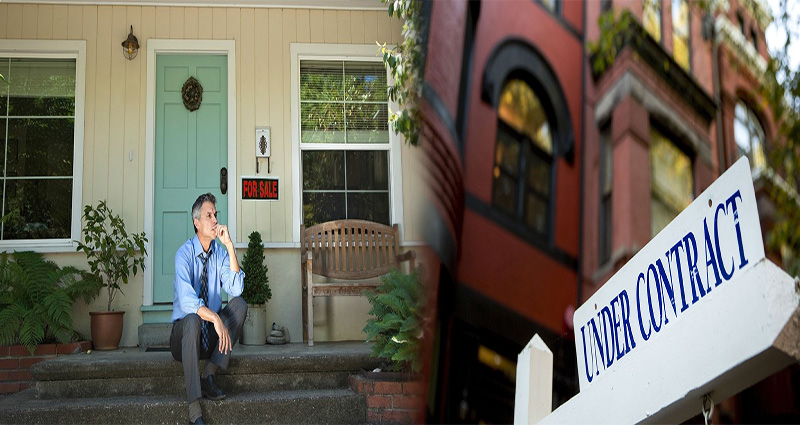The process of selling a house is hard on homeowners. You have to figure out how much your home is worth, list it for sale, and deal with buyers who want to haggle over the price. But there’s more to selling a home than just trying to get the most money out of it. Research shows that buying and selling houses can be just as emotionally taxing—and even traumatic—as buying and selling cars or other large items that require significant commitments of time and money. The good news is that we know how psychology factors into these major life events, which means we can help you better understand what you’re going through when selling your home so that you can make an informed decision about whether now really is the right time for such an undertaking!
The intense work of fixing up a house can be rewarding, but it’s also exhausting.
Fixing up a home can be an incredibly rewarding experience, but it’s also exhausting. You have to put in a lot of time and effort to make your house look good enough to sell.
You may not get much sleep while you’re fixing up your house because you’ll probably have to work around the clock to get everything done before the deadline set by your real estate agent.
Research shows that people who sell their homes have to overhaul their living space when they buy a new one.
Research shows that people who sell their homes have to overhaul their living space when they buy a new one. The reason for this is that we tend to do things in sets. If you’re like most people, you’ll probably get rid of some furniture or other items that are no longer being used in your home–and then replace them with new ones after moving into your next place. This means there will be less clutter in your life overall, which makes it easier for potential buyers who come through the house during open houses or showings by real estate agents (known as “listings” in real estate jargon).
Selling a home can be just as hard on your emotions as buying one for the first time.
Selling a home can be just as hard on your emotions as buying one for the first time. When you make the decision to sell, you’re saying goodbye to a lot of memories. You may feel sad or even angry about the decision, but these feelings are normal and will pass with time.
The process itself can also be stressful and emotional–especially if it’s been awhile since you bought or sold a house, which means that there’s more paperwork involved now than there used to be (and if it hasn’t been awhile since then, well then good luck!).
It’s easy to get attached to a house, even if it isn’t ideal for you anymore.
It’s easy to get attached to a house, even if it isn’t ideal for you anymore.
There are many reasons why you might be attached to your home–it could be your first house and the place where you raised your family; or maybe it was the only place that would accept rent from someone with bad credit and poor references. Whatever the reason, there is no doubt that being emotionally invested in something can make selling that product more difficult than usual.
When you’re selling a home, avoid the trap of overimproving it in an effort to price it higher and make more money.
When you’re selling a home, avoid the trap of overimproving it in an effort to price it higher and make more money.
While it’s true that many people will pay a premium for upgrades, there’s also a risk involved with adding features that go beyond what buyers need or want. For example: You might think adding solar panels will make your house stand out from other homes on the market, but if they aren’t necessary (or even desired) by potential buyers, then all you’ve done is spend money unnecessarily–and potentially priced yourself out of contention with other properties whose owners didn’t spend as much on unnecessary upgrades.
A well-built house will always sell at a premium, so make sure yours stands out from the crowd with upgrades that benefit the buyer.
If you’re going to sell your house, make sure it looks great before listing it. If the upgrades aren’t in line with the market and don’t benefit the buyer, they won’t help your sale at all. The best upgrades are ones that are useful for everyday living and can be used by most people who live in your area. For example, if most homes in your neighborhood have hardwood floors but yours has carpeting instead (and most do), then replacing those carpets with hardwood will give buyers an incentive to choose your home over theirs because they know they’ll get something out of their investment right away.
Make sure your home looks great before listing it; don’t go overboard on improvements
- Make sure your home looks great before listing it; don’t go overboard on improvements.
- The best way to ensure that your house is sold quickly and for a good price is to make sure it’s clean, tidy, and well maintained. Make sure all appliances work properly (and if possible have them serviced). Don’t forget about the garden; if you don’t have one then consider hiring someone who does gardening as a sideline business or at least pay them for advice about how best to keep up with maintenance in this area of your property.
- It’s important not to turn buyers off by making too many changes before selling; however some small changes can be beneficial when trying to sell fast because they will give potential buyers more confidence in their ability to make further improvements themselves once they’ve bought the property from you! So think carefully about whether there are any major improvements that could be made without being too expensive – like repainting rooms etcetera – but don’t go overboard with these kinds of projects until after contracts have been exchanged because otherwise people might think twice about buying because there may still be more work needed after moving into their new home!
These are just a few of the psychological traps that can trip you up when selling a house. But with a little bit of research, you can avoid them and make sure your home sells quickly and for top dollar.











